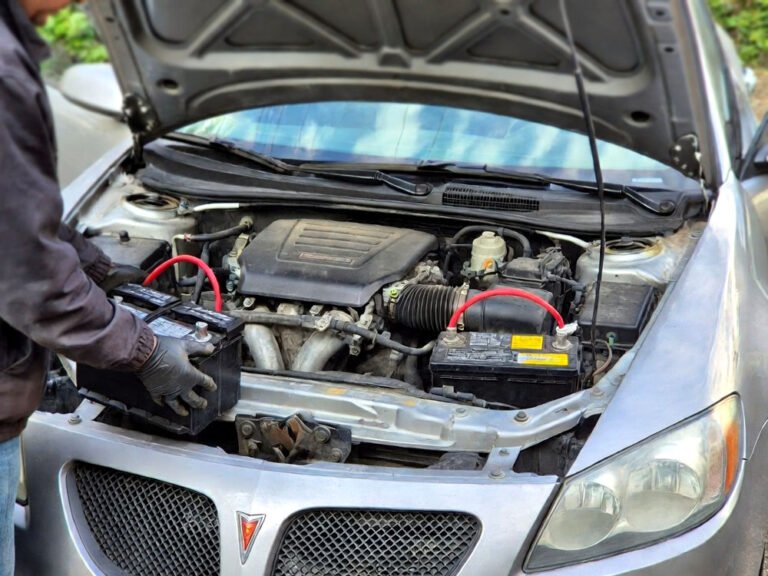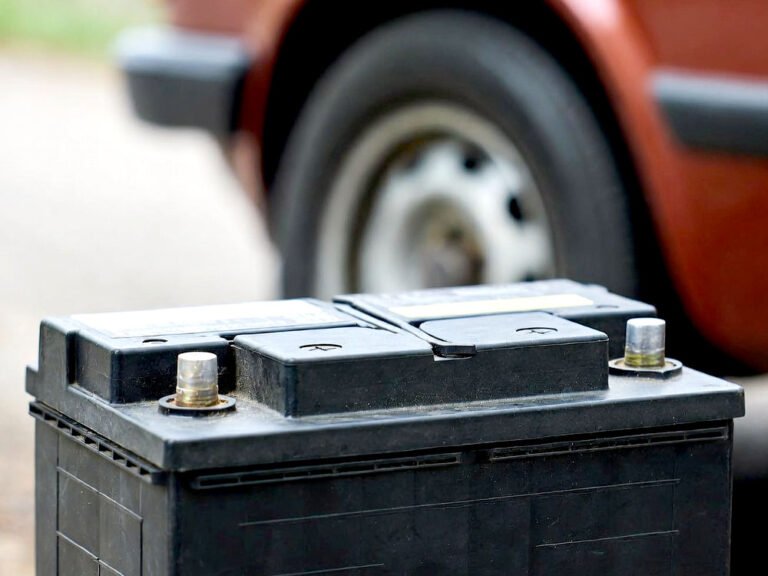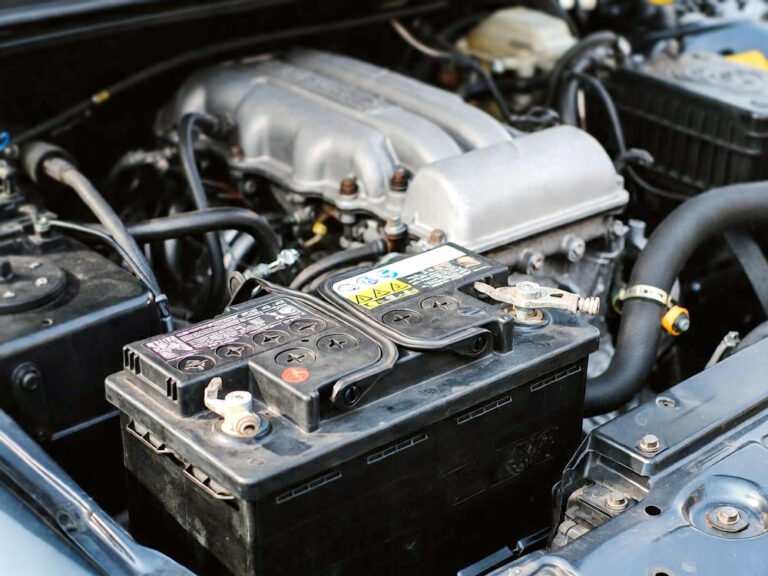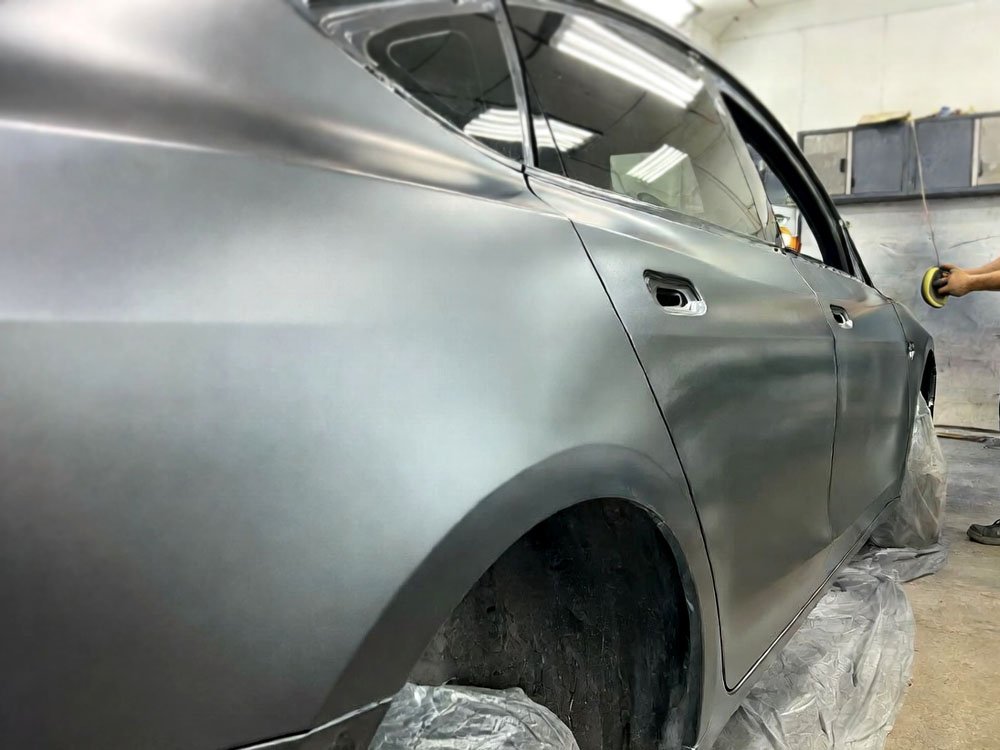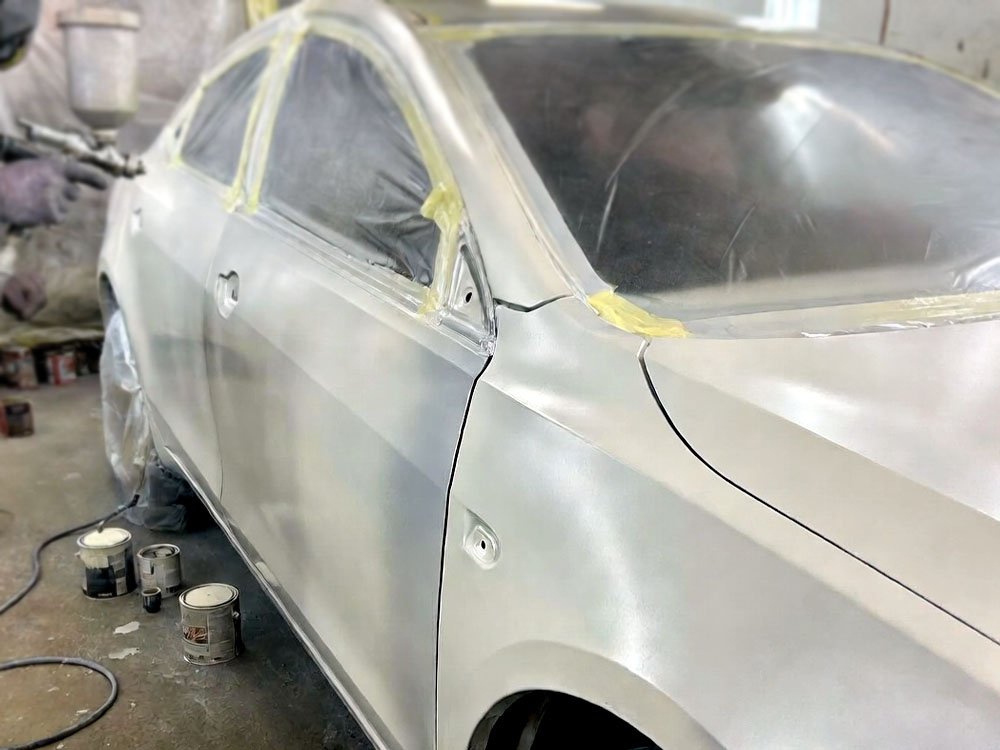To fix exhaust smell in your car, check for any leaks in the exhaust system and repair them immediately. Additionally, make sure the catalytic converter is functioning properly and replace it if necessary.
Moreover, maintaining regular servicing for your vehicle can prevent exhaust smell issues in the long run.

Credit: www.amazon.com
Understanding The Exhaust Smell
Experiencing an exhaust smell in your car? Learn how to fix it with these helpful tips and get rid of that unpleasant odor for good.
Experiencing an unpleasant smell coming from your car’s exhaust can be both alarming and bothersome. While it is natural for vehicles to emit some odor from the exhaust, a strong and unpleasant smell may indicate a potential issue. In this article, we will delve into the world of exhaust smells, discussing the causes behind them and why they are unpleasant.
What Causes The Exhaust Smell In Cars?
The exhaust smell in cars is primarily caused by the combustion process occurring within the engine. As the engine burns fuel to generate power, it produces a variety of gases, including nitrogen, carbon dioxide, and water vapor. However, it also releases harmful substances such as carbon monoxide, nitrogen oxides, and unburned hydrocarbons.
The presence of these substances gives rise to the distinct odor present in your car’s exhaust. While some smells can be considered normal, such as a slightly sulfuric scent due to the presence of sulfur compounds in gasoline, others may indicate a problem that requires attention.
Let’s take a closer look at some common causes behind specific exhaust smells:
- Gasoline or fuel smell: This smell may indicate a fuel leak, either from a malfunctioning fuel injector or a damaged fuel line. In such cases, it is essential to address the issue promptly as leaking fuel poses a significant fire hazard.
- Sweet or sugary smell: A sweet odor could be a sign of coolant leaking into the combustion chamber. This could be due to a cracked engine block, blown head gasket, or a malfunctioning intake manifold gasket. Ignoring coolant leaks can lead to severe engine damage, so it is crucial to have it checked immediately.
- Burning oil smell: If you notice the scent of burning oil, it may indicate an oil leak or an oil spillage onto a hot engine component. This can occur due to a faulty gasket, damaged oil seal, or worn-out cylinder rings. Apart from being unpleasant, burning oil may lead to engine performance issues, and it should be addressed promptly.
- Rotten eggs or sulfur smell: A strong rotten eggs or sulfur smell usually indicates a problem with the catalytic converter. This component is responsible for converting harmful gases into less harmful ones. A malfunctioning catalytic converter can result in increased emissions and decreased fuel efficiency. It requires professional attention for repair or replacement.
- Burnt rubber smell: A burnt rubber smell could stem from a worn-out drive belt or a slipping clutch. Over time, these components can become damaged, leading to a distinct odor. Ignoring the issue can lead to further damage or even a breakdown, so it is essential to have it checked and repaired promptly.
Why Is The Exhaust Smell Unpleasant?
Now that we have explored the causes behind various exhaust smells, let’s understand why they are generally considered unpleasant. The unpleasantness of exhaust smell is primarily due to the presence of harmful gases and toxins that are released during the combustion process.
For instance, carbon monoxide, an odorless but lethal gas, can cause serious health issues and even death when inhaled in high concentrations. Other compounds such as nitrogen oxides contribute to air pollution and can have adverse effects on both human health and the environment.
Additionally, the sense of smell acts as an alarm system, warning us of potential dangers. So, when we perceive an unpleasant exhaust smell, it is our body’s way of signaling that something may be wrong with the vehicle’s performance or emissions.
Understanding the causes behind different exhaust smells and their unpleasantness is crucial to ensure the safety and well-being of both your vehicle and its occupants. It is advisable to address any unusual or strong odors promptly by seeking professional assistance, as it can help prevent more significant issues down the line.
Preventing Exhaust Smell In Your Car
Prevent exhaust smell in your car by addressing potential issues such as worn-out gaskets, loose connections, or a faulty catalytic converter. Regular maintenance and proper repairs are crucial to keep your car smelling fresh and safe on the road.
Car exhaust smell is not only unpleasant but can also be hazardous to your health. It’s essential to take measures to prevent exhaust smell in your car. By following regular maintenance and inspection, using fuel additives, and keeping windows and vents closed, you can minimize the risk of exhaust smell entering your vehicle and protect yourself and your passengers.Regular Maintenance And Inspection
Regular maintenance is crucial to keep your car in good working condition and prevent exhaust leaks. Here are some important steps to consider:- Check for exhaust leaks: Inspect your exhaust system for any cracks, holes, or loose connections. These can allow exhaust fumes to enter your car’s cabin. If you notice any issues, have them repaired immediately.
- Replace faulty components: Worn-out or damaged components, such as the exhaust manifold gasket or catalytic converter, can cause exhaust leaks. If they are faulty, have them replaced by a professional.
- Keep up with routine maintenance: Regularly servicing your car helps ensure its proper functioning and reduces the risk of exhaust smell. Follow the manufacturer’s recommendations for oil changes, filter replacements, and tune-ups.
- Inspect the trunk: In some cases, exhaust fumes can enter the car through a faulty trunk seal. Check for any gaps or cracks in the trunk seal and replace it if necessary.
Using Fuel Additives
Fuel additives can help improve the quality of combustion and reduce exhaust smell. Consider the following:- Octane boosters: Using an octane booster can enhance the efficiency of fuel combustion, resulting in cleaner emissions and reduced exhaust smell.
- Catalytic converter cleaner: Over time, the catalytic converter may become clogged with carbon deposits, affecting its performance. Using a catalytic converter cleaner can help remove these deposits and improve its effectiveness in reducing exhaust smell.
- Fuel system cleaners: Regular use of fuel system cleaners can prevent carbon buildup in the engine and exhaust system, promoting better combustion and minimizing exhaust smell.
Keeping Windows And Vents Closed
Preventing exhaust smell from entering your car’s cabin can be as simple as keeping your windows and vents closed. Here are some tips:- Close windows while driving: When driving, keep your windows closed to prevent exhaust fumes from entering your car.
- Ensure proper ventilation: Use the recirculation mode on your car’s ventilation system instead of the fresh air mode when driving in heavy traffic or congested areas where exhaust smell is more common.
- Replace cabin air filters: Cabin air filters help trap dust, pollen, and other contaminants, including exhaust particles. Regularly replace your cabin air filter to maintain good air quality inside your car.
Removing Exhaust Smell From Your Car
Learn how to eliminate the exhaust smell in your car with these effective tips and tricks. Say goodbye to unpleasant odors and enjoy a fresh and clean driving experience.
Cleaning The Car’s Interior
One of the most effective ways to remove exhaust smell from your car is by thoroughly cleaning its interior. A dirty and cluttered interior can trap odors and make them linger for longer periods. To start, gather all the trash and clutter inside your car and dispose of it properly. Next, remove any removable floor mats and upholstery covers and give them a good shake to get rid of any trapped dirt or debris.
Now, it’s time to deep clean the interior surfaces. Start by vacuuming the seats, carpet, and floorboards to remove any loose dirt and dust. Be sure to reach into the tight spaces like between seats and seat crevices. After vacuuming, use a mild detergent or upholstery cleaner to spot clean any stains on the seats or upholstery.
Tip: To tackle stubborn odors, consider using a fabric freshener specifically designed to neutralize unwanted smells.
Replacing The Cabin Air Filter
A dirty or clogged cabin air filter can contribute to the presence of exhaust smell inside your car. This filter helps prevent pollutants, including exhaust fumes, from entering the vehicle’s cabin. Over time, it can become saturated and less effective at capturing these odors.
To replace the cabin air filter, consult your car’s manual to locate its position and determine the appropriate replacement filter. Once you have the new filter, remove the old one and carefully insert the fresh filter in its place. This simple maintenance task can go a long way in keeping your car’s interior smelling fresh and clean.
Using Odor Eliminator Products
If cleaning and changing the cabin air filter don’t completely eliminate the exhaust smell, you may want to consider using odor eliminator products specifically designed for cars. These products are formulated to neutralize and eliminate odors rather than simply masking them.
In the market, you can find various odor eliminator products such as sprays, gels, and charcoal-based options. When using these products, make sure to read and follow the instructions on the packaging. Apply them in areas where the smell is most prominent or use them as directed for a more widespread effect.
Tip: Consider using a car air freshener in addition to the odor eliminator products to add a pleasant fragrance to your car’s interior.

Credit: enviroklenz.com

Credit: www.chase.com
Conclusion
So there you have it, a comprehensive guide on how to fix exhaust smell in your car. By following these steps, you can eliminate the unpleasant odor and ensure a safe and pleasant driving experience. Remember to regularly maintain your vehicle and address any underlying issues promptly to prevent further problems.
With proper care and attention, you can keep your car smelling fresh and enjoy a clean environment whenever you hit the road.


